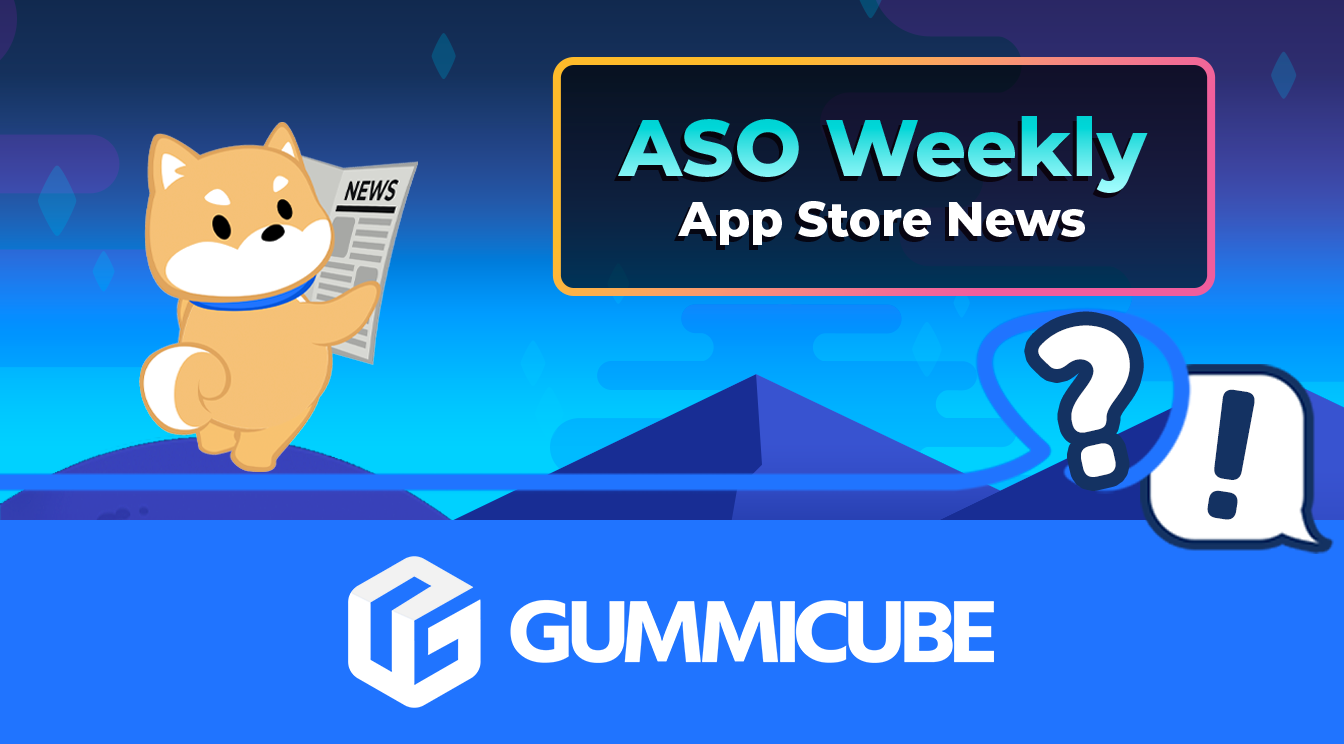App Store Connect at WWDC 2019
June 8th, 2019


by David Quinn
VP of Strategy & Partnerships at Gummicube, Inc.
With Apple’s WWDC event now over, it’s time to take a look at announcements and updates that came out of the event. While everyone is talking about the keynote news, from iOS 13 to the $999 computer stand, there are important updates to app development and App Store Connect that could impact app development and App Store Optimization.
watchOS App Store
The first major announcement was a new watchOS App Store built in to the Apple Watch. This will be available directly from the Apple Watch, which means, once the store launches and developers can see how it’s displayed, app screenshots and descriptions for watchOS should be optimized accordingly.
SwiftUI & Xcode 11
The SwiftUI framework was mentioned as part of the keynote, but its use for app development cannot be overstated. The framework’s simplicity is designed to reduce or eliminate common coding errors, implement changes more easily and help interface layouts. This will enable apps to adapt to the new iOS 13 Dark Mode, for instance, or add the new “Sign-In with Apple” function.
It is also important to note how SwiftUI can be used across Apple’s app ecosystem. Like with Project Catalyst, this will help developers design apps that can be used across devices and operating systems, including iPadOS, macOS, watchOS and tvOS. The cross-platform development can open new opportunities for app developers.
Additionally, the new version of Xcode can be used with a UI design tool that adds user interfaces through SwiftUI. This can help reduce the time spent on coding, as well as its complexity, by designing the app from within the preview.
Transporter
Apple also introduced Transporter, which will be replacing Application Loader. Starting with the beta of Xcode 11, developers can use Transporter to deliver their apps directly to the App Store. Developers can drag the files they want to deliver into the Transporter interface and click to begin verifying it. Any errors or warnings that arise during verification will be displayed on Transporter, so developers can fix them quickly. This can be used for multiple apps at once.
TestFlight Feedback
Developers can also receive better feedback for the beta test versions of their apps. TestFlight Feedback is designed to improve the quality and quantity of feedback from beta testers. It makes it easy for app testers to get onboarded and provide feedback without leaving the app, including prompts delivered instantly when the test app crashes.
New Languages for Localization
App Store Connect has also gained new localization features. This includes new language support for Arabic and Hebrew. Notably, this includes right-to-left language support. This requires graphic redesigns for App Store listings in those languages, so developers need to test their localized redesigns to ensure everything still looks good and reads smoothly regardless of the direction they’re read in.
Developers with apps available in regions that speak those languages can begin localizing and updating their apps for them. While updating the language, developers should also look into updating their creatives based on what local tastes. Researching what keywords and features are popular in those areas is essential for an optimized app, which may result in significant changes to the description and creative sets.
Analytics
iOS apps now have a new metric for their analytics: App Deletions. This will let developers know if users are uninstalling apps at a significant rate so they can identify and address any new issues. Along with overall deletions, developers can see deletions by source type, which will let developers know if a given source is resulting in more or fewer uninstalls.
App Store Connect now offers analytics for macOS apps. This includes information for impressions, product page views, app units/downloads, and overall sales. As with analytics for iOS apps, this will be important for tracking performance and addressing any issues that may be impacting performances on each platform.
Last but not least, the dashboard has been updated with information on 24 hours of sales performance. Developers can break down their data by the hour, allowing them to track downloads and performance as soon as a new app or update rolls out.
Overall
While WWDC 2019 revealed exciting information for consumers, the App Store Connect updates are important for app developers. The new features and options can help them gather more valuable feedback, reach users in new languages and both build and upload apps more easily. As with all aspects of app development and marketing, utilizing App Store Optimization with these changes can help an app thrive.
Want more information regarding App Store Optimization? Contact Gummicube and we’ll help get your strategy started.
Similar Articles

Posted on January 25th, 2024
Have you received a WhatsApp message, LinkedIn message, or a message from another messaging app offering a remote work opportunity by an individual claiming to be affiliated with Gummicube?

Posted on January 9th, 2023
From Apple’s Fitness+ update, Google providing insight into real users versus bots, and Play Store Changelogs potentially being phased out, this ASO Weekly analyzes the different developments you should be aware of as 2023 kicks off.

Posted on March 18th, 2022
On March 21st, thousands of game developers and companies will come together for the opening day of The 36th annual Game Developer Conference (GDC).





